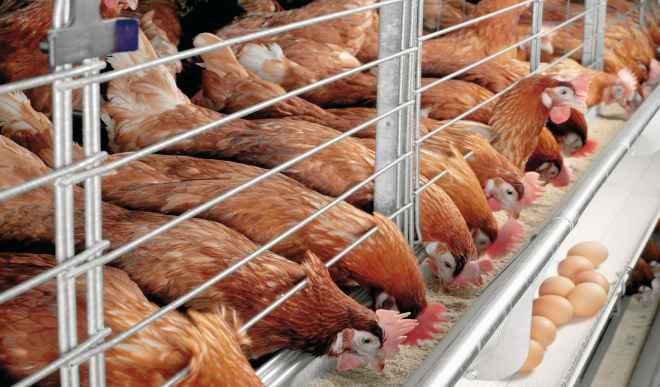One of the most successful breeding programmes of the National Animal Production Research Institute (NAPRI), Zaria, is the one that produced the notable Shika Brown chickens, which achieved widespread recognition.
The institute has 10 research programmes across the livestock sector which have resulted in notable innovations.
NIGERIA DAILY: Why Atiku Asked Northerners To Vote Fellow Northerner
Brain drain: Nigeria left with 24,000 doctors – NMA
Information from the institute shows that the Shika Brown can start laying eggs at about five months and can give about 285 eggs per year with a high-performance rate of 85%.
They are adaptable to the local environment because the strain of the birds has been adapted to all ecological zones of the country.
The birds are described as dual-purpose because even after finishing laying, they can still weigh up to 2.1kg suitable for meat.
Mr Sadiq Abubakar is the public relations officer of the institute and also doubles as the Head, Education and Information Unit of the institute.
Daily Trust caught up with him at the just concluded National Agric Show and he explained why the institute struggles to meet the demand for the Shika Brown.
“You know, the challenge has also been the capacity of the hatchery because our institute is the only institute with the mandate of livestock production in Nigeria, so you have a lot of requests from all over the country.
“But we have been limited by funds to be able to improve or increase our production capacity. So you see farmers even from Niger Republic coming to request for the Shika Brown. A farmer can request for 2,000, 4000, or even 5000 birds,” he said.
Wait, you have to join the queue
The institute, however, does not have the hatching capacity to meet the increasing demand of farmers due to a number of factors, one of which is the paucity of funds.
“We have limited capacity, so what we do is when farmers present their request, we place them on order. There is a queue of farmers that have requested already, so when you come, we will give you a timeline for when you will be able to get your order.
“You know, we’re a government agency, so we don’t sell it commercially. That is outside our mandate,” Sadiq said.
Though as a government research institute, the output of the agency is supposed to go to farmers almost free, but the information officer said, “What you give for free, people don’t value, so we just charge a stipend, and whatever we charge, is not enough to facilitate massive production,” hence the reliance on government funding.
“So when farmers request, we place you on order and give you a timeline on when we will be able to deliver to you.
“The time depends on the number of people on the ground; most of the time it’s not more than two months,” the officer stated.
Most farmers can’t wait
He said the institute’s products are in high demand but farmers are beginning to lose interest because they can’t wait for long; forcing many of them to seek other alternatives that are sometimes not viable.
The officer was, however, optimistic that when funding improves, the hatchery capacity of 50,000 or 100,000 birds will improve.
“Hatchery takes about 21 days and you have to be on power constantly. In fact, you shouldn’t lose power for one minute.
“So most of the time, when we’re hatching, we have to be on generator for 21 days. So you can imagine the expenses. And with the cost of diesel now, you can imagine the kind of funding that goes into that.
“Because we are a government institute, we can’t sell commercially; we can’t sell at the price that the other players in the industry sell their birds.
“If we had improved funding in research, we would be able to scale up our capacity. We would be able to reach out to more farmers and people would begin to feel our impact,” Abubakar stated.
However, with the new ARCN Amendment Act, which mandates research institutes, colleges and universities to also consider setting up spin-off companies, that might change the way these institutions operate.
Option for farmers
To ease the problem, they have adopted a number of measures to ensure that farmers, who most often do not have the patience to wait on the queue, can benefit from it.
One such way is to refer farmers to hatcheries that have a partnership with the institute, including the outgrower programmes.
“Like the Shika Brown, we have commercial hatcheries that we have given out the grandparents’ stock (GPS) to produce the commercial layers that they sell to farmers.
“If you’re requesting from Osun State, for example, and we have a commercial hatchery that has our parent stock closer to Osun, we would just direct you there.
“The same thing, if you’re in Imo and there is a commercial hatchery that is in partnership with us close to you, we would just direct you there to go and get the best,” he explained.

 Join Daily Trust WhatsApp Community For Quick Access To News and Happenings Around You.
Join Daily Trust WhatsApp Community For Quick Access To News and Happenings Around You.